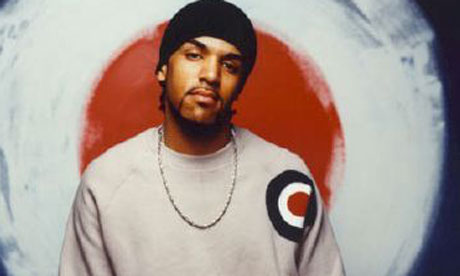When future generations excavate our cultural past, we can be proud of the fact that the transition from one millennium to another in Britain was marked not only by patriotic pageantry or mass panic about the end of the world, but also by the phrase "bo selecta".
Released in December 1999, Craig David's platinum-selling Re-Rewind was actually held off the No 1 spot, first by Cliff Richard's (considerably less banging) The Millennium Prayer, and then by Westlife's cover of Seasons in the Sun. But this was the real anthem of the people, a track heard everywhere for months afterwards, and one that finally marked garage's elevation into mainstream pop culture.
Before its corrosion and eventual demise, and before Southampton's finest brought it to Top of the Pops, garage was the sound of the second room at early 1990s jungle raves, and as the hungry junglists popped next door looking for something a bit quicker, garage stepped up the pace and became speed garage. Later in the 1990s, the variant that became known as UK garage, or two-step, emerged, generally attributed to the US producer Todd Edwards. The chief departure was away from the four-to-the-floor house rhythm, with the removal of the third kick drum beat creating a restless, shuffling effect, the syncopated snare and time- or pitch-shifted vocals generating an entirely different, new kind of dancefloor urgency.
But UK garage was perhaps always destined to be a pop genre, in a way that its offspring, grime and dubstep, were not – the irresistibly shuffling beats and soulful vocals memorable and infectious. Shanks and Bigfoot's Sweet Like Chocolate was actually a bigger seller than Re-Rewind, earlier in 1999, but it marked the end of an era where the producer-DJs were king and club anthems were sung by anonymous divas.
Re-Rewind changed everything, because it made a star of Craig David and his sweet boy persona, while relegating the producer-DJ (fellow Southamptonian duo the Artful Dodger) to the background. His subsequent hits 7 Days, Fill Me In and Walking Away departed from UK garage in favour of R&B, attracting a fair amount of derision in the process.
The nadir of his unfairly maligned place in British pop culture was when comedian Leigh Francis (aka Avid Merrion) donned a rubber Craig David mask to impersonate him for his show Bo' Selecta! – from whom he stole the title, too. "Inside, it was absolutely pissing me off and hurtful beyond belief," David said later. "There were times when I thought, I just want to knock this guy out."
While he was seen as too smooth, the rest of UK garage soon moved in exactly the opposite direction. As songs such as Sweet Female Attitude's Flowers dominated the charts, and UK garage's aspirant champagne and smart shoes culture matured, a younger generation wanted something edgier and darker. The likes of So Solid Crew and Pay As You Go used their pirate radio shows to promote the dirty basslines and sparse, moody atmospherics that would soon mutate into grime. Before long, UK garage became known as a violent, thuggish MC genre, all "gats", drug deals and raves cancelled amid media-fuelled paranoia: culminating in the ridiculous incident in May 2001 when So Solid Crew's Neutrino shot himself in the leg outside a London club.
Much of Re-Rewind's greatness comes from the fact that it's a song entirely, and only, about the dancefloor, and the Jamaican-inspired practice, which garage inherited from jungle, of pulling back and replaying a part of a track that's got the crowd in paroxysms of excitement. Music fans from most other parts of the world, and most other dance scenes in Britain (outside of grime, dancehall, dubstep and drum'n'bass), still don't get the point of rewinds. Much like Craig David, rewinds are one of those things you either get, or you don't – but when it's judged right by the DJ and the crowd, it's the most euphoric, celebratory experience you can have in a club. "When the crowd go wild, what you gonna do?" David sings.
Even beyond the famous chorus, Re-Rewind is a tribute to the selector, and to the dance itself; "this one goes out to all the DJs", David says, sporadically. It's oddly tragic to think that a song displaying so much love for UK garage's rave rituals also heralded the demise of those raves. Yet the affection survives in a new generation: the unconditional love for UK garage among 2011 British dubstep, house and post-everything producers and DJs is the worst-kept secret in current dance music. Watch what happens in a rave now when a DJ cheekily drops in Sweet Female Attitude's Flowers, Oxide and Neutrino's Bound 4 Da Reload or Re-Rewind at the end of a set. It's a sight to behold – and you can bet those tracks are getting wheeled up.











